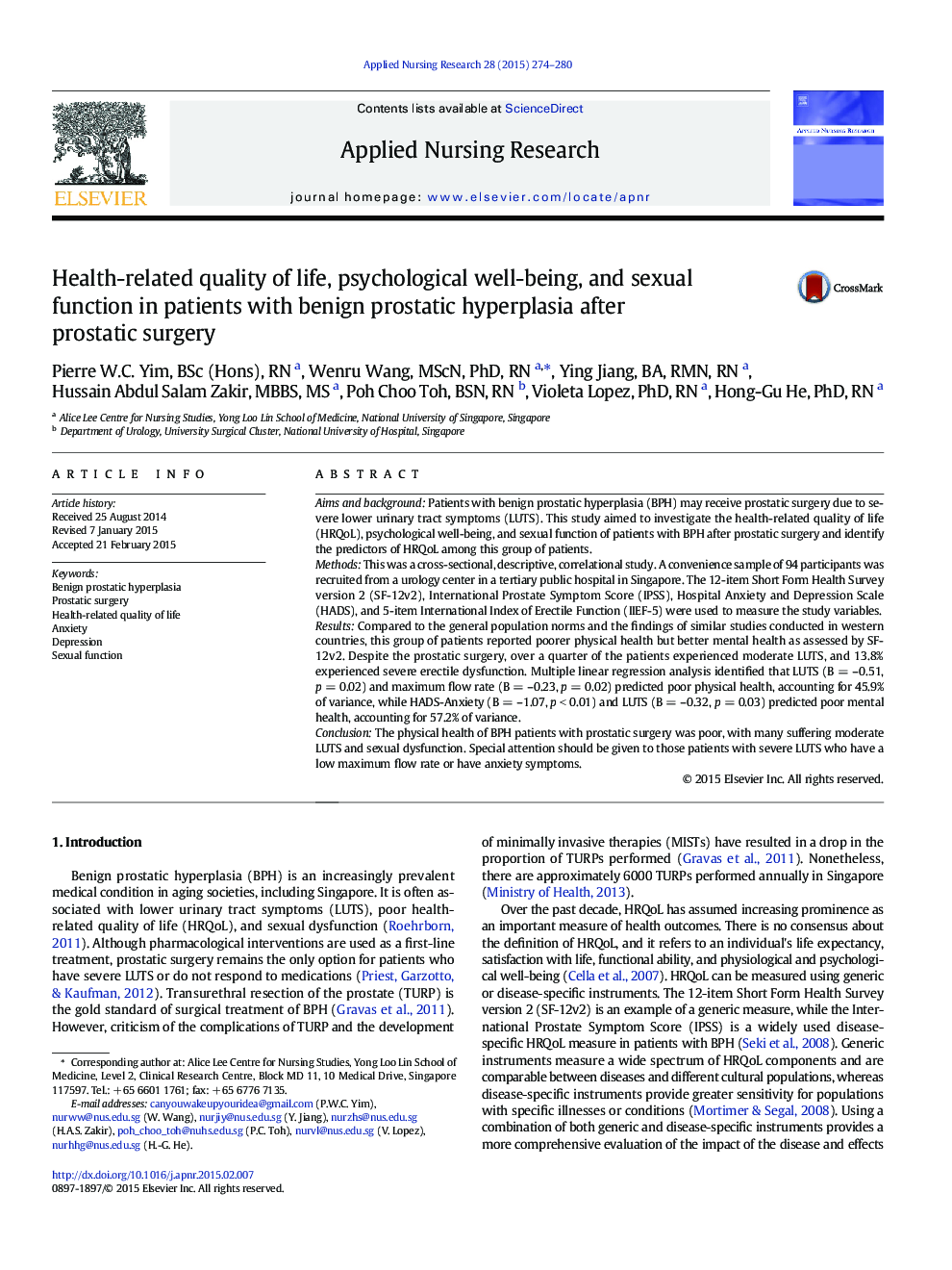| Article ID | Journal | Published Year | Pages | File Type |
|---|---|---|---|---|
| 2644492 | Applied Nursing Research | 2015 | 7 Pages |
Aims and backgroundPatients with benign prostatic hyperplasia (BPH) may receive prostatic surgery due to severe lower urinary tract symptoms (LUTS). This study aimed to investigate the health-related quality of life (HRQoL), psychological well-being, and sexual function of patients with BPH after prostatic surgery and identify the predictors of HRQoL among this group of patients.MethodsThis was a cross-sectional, descriptive, correlational study. A convenience sample of 94 participants was recruited from a urology center in a tertiary public hospital in Singapore. The 12-item Short Form Health Survey version 2 (SF-12v2), International Prostate Symptom Score (IPSS), Hospital Anxiety and Depression Scale (HADS), and 5-item International Index of Erectile Function (IIEF-5) were used to measure the study variables.ResultsCompared to the general population norms and the findings of similar studies conducted in western countries, this group of patients reported poorer physical health but better mental health as assessed by SF-12v2. Despite the prostatic surgery, over a quarter of the patients experienced moderate LUTS, and 13.8% experienced severe erectile dysfunction. Multiple linear regression analysis identified that LUTS (B = –0.51, p = 0.02) and maximum flow rate (B = –0.23, p = 0.02) predicted poor physical health, accounting for 45.9% of variance, while HADS-Anxiety (B = –1.07, p < 0.01) and LUTS (B = –0.32, p = 0.03) predicted poor mental health, accounting for 57.2% of variance.ConclusionThe physical health of BPH patients with prostatic surgery was poor, with many suffering moderate LUTS and sexual dysfunction. Special attention should be given to those patients with severe LUTS who have a low maximum flow rate or have anxiety symptoms.
